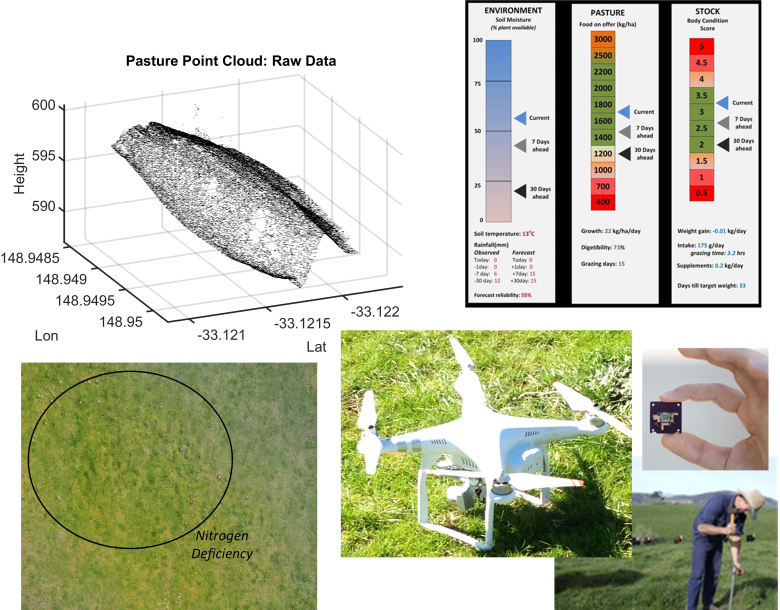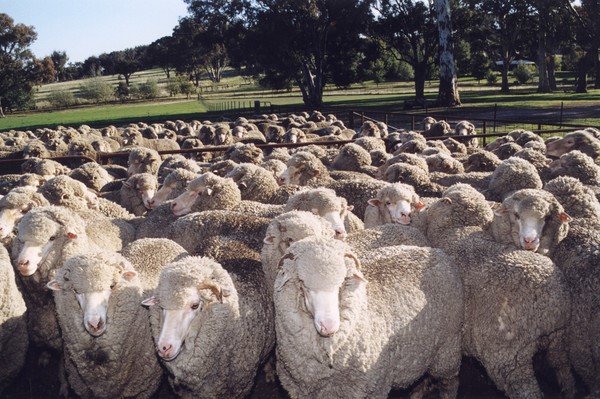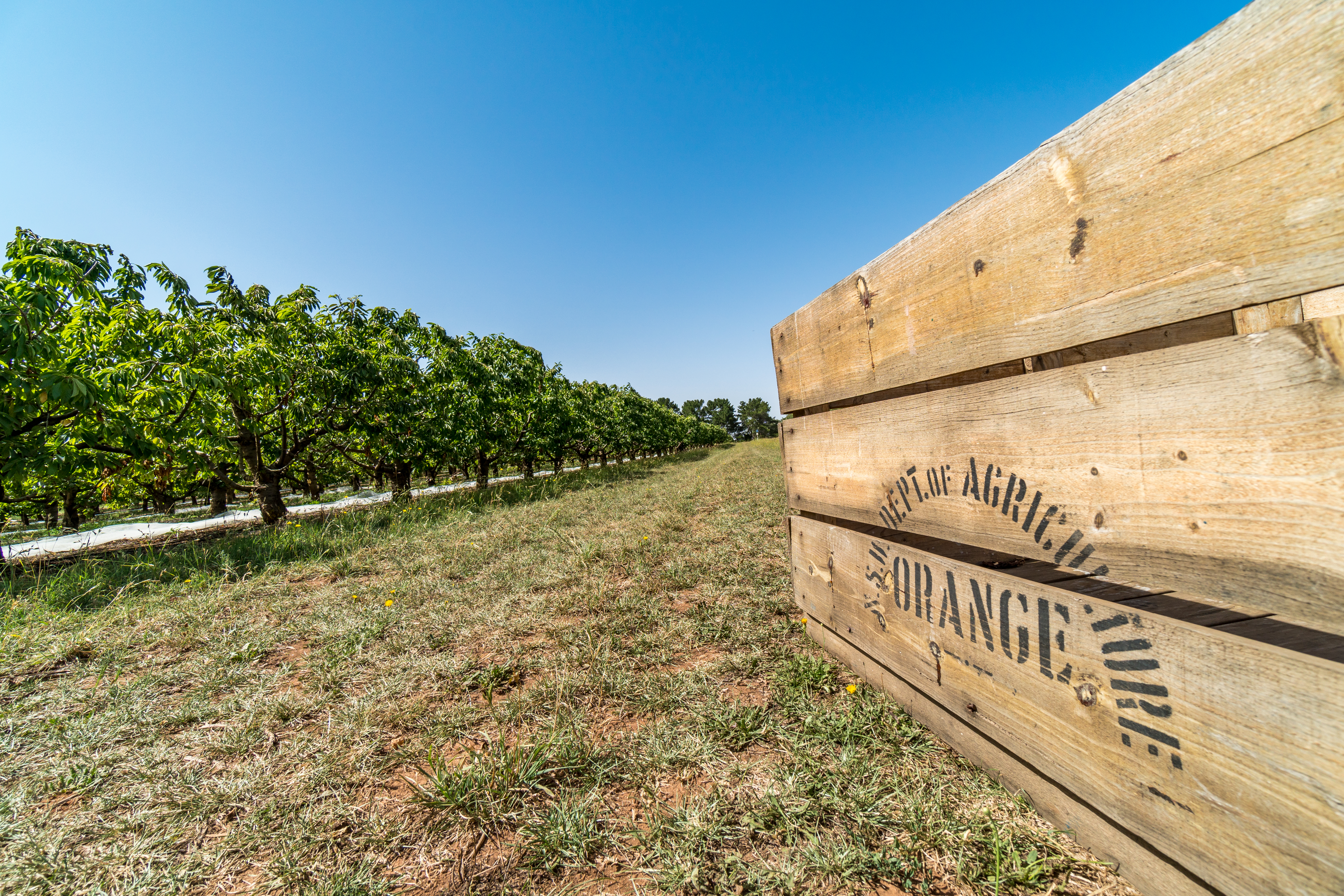Biosecurity Collections
OAI houses over 700,000 plant, pest and disease specimens dating back to 1895. We are world class experts in identifying pests and diseases and applying cutting edge molecular diagnostics for identifying agricultural threats. We ensure that produce into and out of Australia is free of pests and diseases. Biosecurity Collections
Climate
The Climate Unit has specialists working in agricultural climatology, agricultural systems modelling, climate risk and impact assessment, and computational and spatial science.
assessment, and computational and spatial science.
Key climate projects located at OAI include:
- NSW Enhanced Drought Information System (EDIS)
This new system integrates soil, land use, remote sensing and climate data to improve the accuracy, reliability and comprehensiveness of drought assessment, monitoring and early warning, and supports the unit’s role in seasonal conditions reporting. - Digital agriculture
The Farm Decision Technologies (FDT) program will see a range of climate, soil, pasture and animal sensor technologies deployed at OAI using advanced in-field telemetry and IoT connectivity designed for poor internet speed and data backhaul. The goal is to thoroughly test promising technologies with a focus on practical farm application and determining the economic value to farm businesses. - Seasonal conditions reporting
The monthly Seasonal Conditions Reports help landholders prepare for seasonal conditions and drought and are used by the Regional Assistance Committee. - Climate mitigation
Emissions Reduction Fund research aims to provide information that enhances the environmental, social and economic outcomes from carbon farming in western NSW. Opportunities to enhance mitigation as well as identifying the trade-offs and synergies between carbon farming and traditional pastoral land use are also being determined.
Horticulture
OAI is a base for temperate fruit and viticulture development in NSW, with an emphasis on Central Tablelands apple and cherry industries, and viticulture in the Orange, Mudgee and Hunter regions. Orange Agricultural Institute supports 5ha of irrigated orchards (~ 5000 trees) including:
- Apple plantings with dwarfing rootstocks showcasing intensification strategies for efficient apple production
- Cherry plantings supporting research examining the link between fruit rots and thrips
- A hazelnut variety evaluation program, established with Agri Australis to assess regional performance and links to DPI’s program to assess potential production areas
- Further nut plantings are planned to support walnut research (Federal Government’s Research for Profit program)
We collaborate with Biosecurity and Food Safety staff located at OAI, focusing on fruit fly research and surveillance to support NSW horticultural exports. We also play a critical role in sourcing and supplying temperate fruit used by DPI’s Ourimbah Institute for disinfestation and food safety research.
Livestock
Collaborating with Sheep CRC, Australian Wool Innovation, CSIRO and various universities, we have developed new programs to assist the sheep industry with genetic evaluation of merino sheep through programs such as “Selection Assist” and “Pedigree Matchmaker”. Working with farmers to improve production and profitability of sheep and wool; we are constantly developing tools to reduce time and labour and implement improved management strategies.
Our main focus is improving the productivity and profitability of sheep and wool production, working with the local weather trial committee, Australian Wool Innovation, Sheep Industry CRC, universities and CSIRO.
Current projects include:
- Genetic evaluation of merino sheep
We analyse and report on performance of various bloodlines and sires run under similar conditions. - Precision sheep management
We convert data into useful management decision tools and develop new technologies that reduce time and labour for data collection and implementing management strategies. - Wild dog project We work with the Vertebrate Pest Research Unit quantifying the impacts of wild dog presence on the productivity and profitability of a sheep flock.
- Farm Decision Technologies project
We are collaborating with the Climate Unit on this new project.
Pastures
Pastures undertake multidisciplinary research into grazing and farming systems, working with DPI’S climate, water and weeds units.
Our main research activities are to:
- Manage grazing in native and introduced pastures to improve profitability and sustainability of livestock production (OAI/Central Tablelands/northern China)
- Develop a grazing management App to assess paddock and farm feed, predict animal performance, and budget feed into the future (with Climate Unit’s Farm Decision Tech team)
- Develop whole-farm management practices for serrated tussock using spraying and pasture competition (with Climate Unit and Weeds Unit)
- Understand how environment and land use influence soil carbon levels and how soil carbon influences key soil properties in mixed farming systems, such as the supply of nutrient to crops (with Climate Unit)
Soils & water
The Agricultural Resources team (including the Soil & Water R&D and Water Planning & Policy units) develops, assesses, and promotes technologies and management systems that improve soil and water productivity whilst enhancing their quality and protecting them from degradation.
The Soil & Water R&D unit vision is to improve how soil and water are used, advancing the profitability and resilience of farming systems. As a unit we collaborate with NSW DPI and industry experts across cropping, grazing, horticulture, climate science and other related disciplines. We partner with a range of stakeholders including Local Land Services and the private sector to ensure that our technical expertise and R&D findings contribute to improvements in on-ground management practices.
The Water Planning & Policy unit provide strategic and technical policy and planning advice to a range of industries and Government agencies.
Vertebrate Pest Research Unit (VPRU)
Research centers on the scientific application of best practice management methods for pest animal problems. Our work involves using the highest standards of scientific research methods to provide reliable and information-based advice. The VPRU staff specialise in a range of fields such as:
- Improved integrated management strategies for wild dogs, foxes, feral cats and deer
- Rabbit biocontrol
- Development of new survey methods for counting and analysing wildlife abundance
- Development and refinement of animal welfare best practice for the control of pest animals
- Aerial survey techniques and training
- Quantifying non-target impacts of pest management
- Calculation of sustainable harvest rates for kangaroos and waterfowl
- Citizen science and mapping
- Application of social psychology to understand the attitudes, beliefs and behaviours of the stakeholders to the management of pest animals.
Most VPRU researchers are located at OAI. However, there are a growing number of research staff located at the University of New England (Armidale) and in other parts of NSW.
Viticulture
OAI works with grape growers and winemakers to create disease resistant wine grapes to lower costs and reduce chemical use, for a safer and cleaner environment and end product. We are working to increase production, protect grapes from environmental extremes and also to develop new wine varieties.
- Wine grapes are also likely to be planted as part of a joint DPI/CSIRO variety evaluation trial
Weed Research Unit
We work in cropping, grazing and environmental systems, tackling the weeds that affect these systems the most. Our Weeds Research, Development and Extension Strategy details current work under three major weeds research themes: 1) prevention and early intervention; 2) mitigating adverse impacts; and 3) enhanced adoption and engagement.
For example, we aim to develop best practice management approaches through gaining a greater understanding of the biology and ecology of weeds and developing cost effective integrated management strategies. Current research projects include:
- Integrating weed tactics for best practice management
- Mitigation and management of herbicide resistance
- Seed bank biology
- Weed biological control
The main focus of weed research at OAI is weed biological control. The expansion of the Biosecurity Insect Containment Facility here will allow the Unit to increase their research on biocontrol.
Some of our highlights include:
- Certification of the first insect biocontrol quarantine facility in NSW
- Collaborative biocontrol research on fireweed
- Innovative biocontrol research on alligator weed
- Two rounds of national Rural R&D for Profit funding for biocontrol research
- Collaborative biocontrol research on giant rat’s tail grass, mother-of-millions and ox-eye daisy
- Weed risk assessments and consultations with weed practitioners (LLS, regional weed committees, councils)
- Eco climatic modelling of weeds and biocontrol agents
- Collaborative research with the climate team on life cycle assessment
